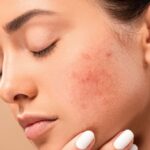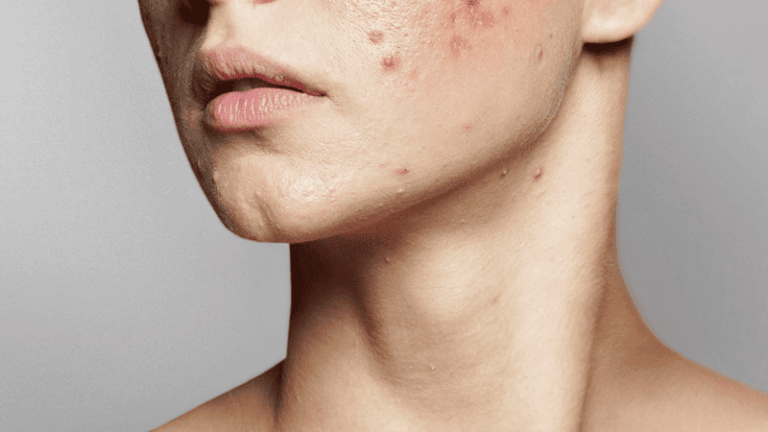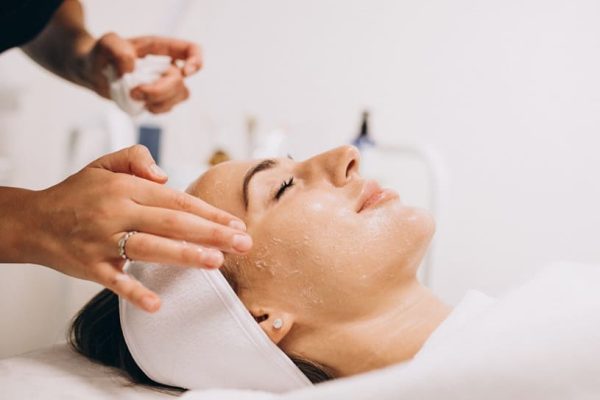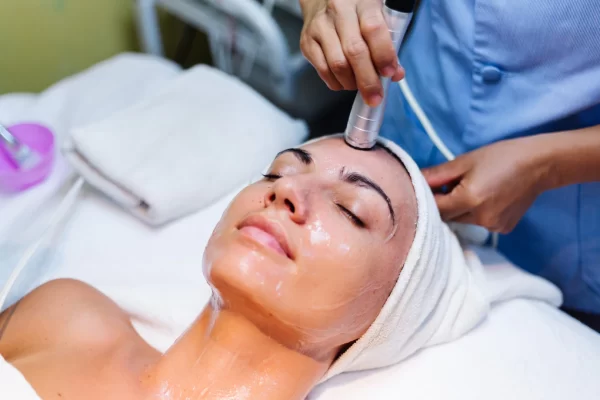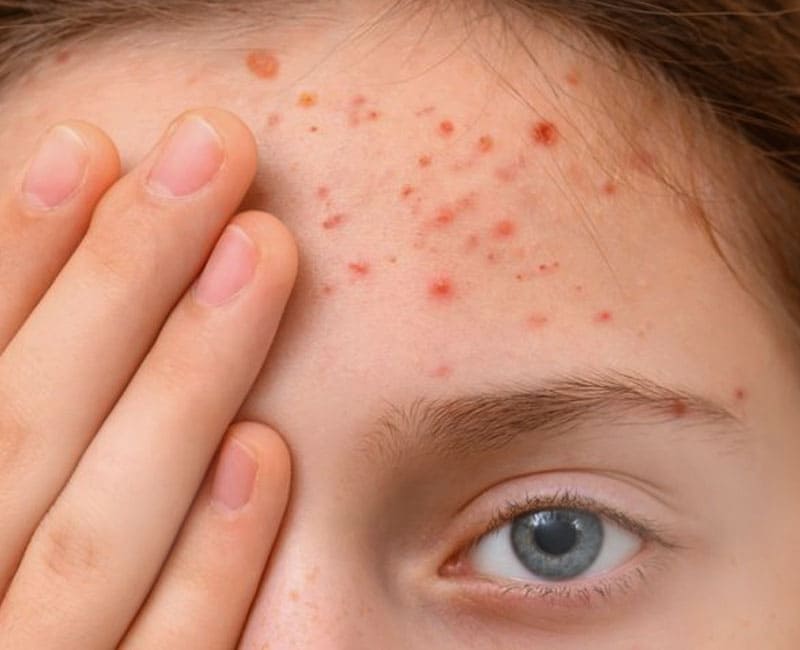Acne is one of the most common skin conditions, affecting millions worldwide. For many, acne doesn’t end with the disappearance of active breakouts. It often leaves behind stubborn scars that can last for years, impacting self-esteem and skin texture. Thankfully, advancements in dermatology offer numerous treatment options to reduce or even eliminate these scars. In this detailed guide, we will explore the different types of acne scars, available treatments, and what truly works to achieve smoother, clearer skin.
Understanding Acne Scars
Before diving into treatments, it’s essential to understand the different types of acne scars since each responds differently to treatment:
- Atrophic Scars (Depressed Scars):
- Ice Pick Scars: Deep, narrow pits that resemble puncture wounds.
- Boxcar Scars: Broad, rectangular depressions with sharply defined edges.
- Rolling Scars: Wide depressions with sloping edges, giving the skin a wavy appearance.
- Hypertrophic and Keloid Scars (Raised Scars):
- Raised, thickened tissue that develops where the skin has healed. Keloids can grow beyond the original wound.
- Post-Inflammatory Hyperpigmentation (PIH):
- Dark spots or discoloration that remains after the acne has healed, more common in darker skin tones.
Identifying your scar type is the first step towards selecting the most effective treatment.
Topical Treatments
Topical treatments are often the first line of defense, especially for mild scarring or hyperpigmentation.
- Retinoids: These vitamin A derivatives, like tretinoin, help stimulate collagen production, promote cell turnover, and fade pigmentation.
- Hydroquinone: A skin-lightening agent effective for PIH.
- Vitamin C Serums: Help brighten the skin, reduce hyperpigmentation, and support collagen synthesis.
- Alpha Hydroxy Acids (AHAs) and Beta Hydroxy Acids (BHAs): Exfoliate the skin,unclog pores and improve texture
While topical treatments may not dramatically reduce deep scars, they can significantly improve overall skin tone and texture when used consistently.
Chemical Peels
Chemical peels involve applying a chemical solution to exfoliate the top layers of skin, promoting new skin growth and reducing the appearance of scars.
- Superficial Peels: Glycolic acid or salicylic acid peels target mild scarring and pigmentation.
- Medium Peels: Trichloroacetic acid (TCA) penetrates deeper to treat more significant scarring.
- Deep Peels: Phenol peels are rarely used due to their intensity but can dramatically improve severe scarring.
Chemical peels require multiple sessions for optimal results and should be administered by a qualified dermatologist to avoid complications.
Microneedling (Collagen Induction Therapy)
Microneedling procedure involves using fine needles to create controlled micro-injuries in the skin, stimulating the body’s natural healing process and promoting collagen production.
- Effective for atrophic scars, especially rolling and boxcar scars.
- Can be combined with serums like hyaluronic acid or PRP (Platelet-Rich Plasma) for enhanced results.
- Multiple sessions are required usually, spaced a few weeks apart.
Microneedling is a minimally invasive procedure with minimal downtime and significant results over time.
Laser Treatments
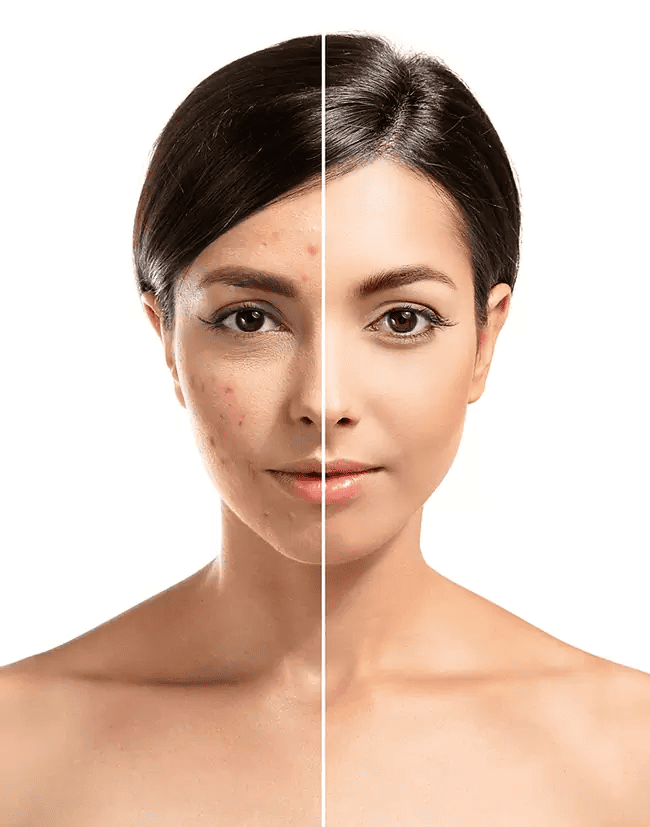
Laser therapies have revolutionized acne scar treatments by targeting deeper layers of the skin with precision.
- Fractional CO2 Laser: Highly effective for deeper atrophic scars, promoting collagen remodelling.
- Erbium YAG Laser: A gentler & safe option that resurfaces the skin and improves skin texture.
- Pulsed Dye Laser (PDL): Reduces redness and improves hypertrophic scars.
- Picosecond Lasers: Effective for pigmentary issues and superficial textural improvement.
Laser treatments often require several sessions and come with some downtime but can offer dramatic improvements, especially for moderate to severe scarring.
Radiofrequency Microneedling (MNRF)
MNRF is the advanced treatment combines microneedling with radiofrequency energy, delivering heat deep into the skin to stimulate collagen production more intensely.
- Suitable for atrophic scars and skin tightening.
- Minimally invasive with quicker recovery compared to ablative lasers.
- Typically requires multiple sessions.
Subcision
Subcision is a minor surgical procedure where a needle is inserted under the scar to break the fibrous bands pulling the skin down.
- Particularly effective for rolling scars.
- Often combined with other treatments like fillers or Microneedling & Fractional lasers.
- Minimal downtime with significant improvement in skin texture.
Dermal Fillers
Dermal fillers can be injected into depressed scars to raise them to the level of surrounding skin temporarily.
- Hyaluronic acid fillers are commonly used.
- Results are immediate but temporary, often lasting 6-12 months.
- Best suited for certain types of atrophic scars.
Platelet-Rich Plasma (PRP) Therapy
PRP Therapy uses the patient’s own blood, processed to concentrate the platelets and growth factors, then injected or applied to the skin.
- Enhances healing and collagen production.
- Often combined with microneedling for improved results.
- Safe and natural, with minimal risk of allergic reaction.
Surgical Treatments
For very deep or stubborn scars, surgical treatment options may be considered:
- Punch Excision: Cutting out the scar tissue and closing the wound with stitches.
- Punch Flotation: Raising the scar tissue and adhering it to the borders with cyanoacrylate gel.
- Punch Grafting: Replacing the excised scar with a small skin graft from another area.
- Scar Revision Surgery: Reshaping or minimizing the scar to make it less noticeable.
These procedures are usually done by dermatologic surgeons / Plastic Surgeon and may be followed by other treatments for best results.
Combination Therapy: The Gold Standard
In many cases, a combination of treatments yields the best results. Dermatologists often tailor a treatment plan that may include:
- Topical Retinoids + chemical peels
- Subcision +Microneedling/MNRF + PRP
- Subcision + Laser Resurfacing + PRP
- Subcision + Fillers
- Any of the above with surgical options for the deeper scars
Customized combination therapy addresses multiple aspects of scarring and accelerates improvement.
Prevention: The Best Approach
Preventing acne scars is always preferable to treating them:
- Early Acne Treatment: Seek professional help for acne management to prevent severe breakouts.
- Avoid Picking or Squeezing Pimples: This increases inflammation and risk of scarring.
- Sun Protection: UV exposure can worsen hyperpigmentation and delay healing.
Consistent skincare and early intervention can dramatically reduce the likelihood of developing scars.
Choosing the Right Treatment for Acne Scars
Selecting the appropriate treatment depends on several factors:
- Type and severity of scars
- Skin type and tone
- Overall health and medical history
- Budget and availability of treatments
Consulting a board-certified expert dermatologist is crucial to evaluate these factors and design a personalized treatment plan.
What Really Works?
While many treatments offer hope, evidence-based therapies consistently deliver the best results:
- Laser Resurfacing and Microneedling (with or without RF) remain among the most effective for atrophic scars.
- Subcision combined with fillers offers substantial improvement for rolling scars.
- Chemical Peels and topical treatments are excellent adjuncts for pigmentation and minor textural issues.
- Consistent professional care ensures better, long-lasting outcomes compared to DIY methods.
Patience is key, as most treatments require multiple sessions over several months to achieve optimal results. Maintenance treatments may also be necessary to preserve improvements.
Acne scars can be a challenging cosmetic concern, but the array of modern treatments available today provides real hope for those seeking smoother, clearer skin. From topical agents and chemical peels to advanced laser therapies and surgical interventions, a variety of effective options exist to address all types of acne scars. The key lies in proper diagnosis, professional guidance, and a tailored treatment plan that considers individual needs and goals. With commitment and expert care, dramatic improvements are possible, helping individuals regain their confidence and achieve healthier, more radiant skin.
Consult FMS Skin & Hair Clinics, Best Cosmetic Skin Clinic in Hyderabad for Advanced Cosmetic Skin Care Treatments
For Appointment Booking. Please call us or WhatsApp at 8885060760 Or Email Us at [email protected]

Author: Dr. Radhika


